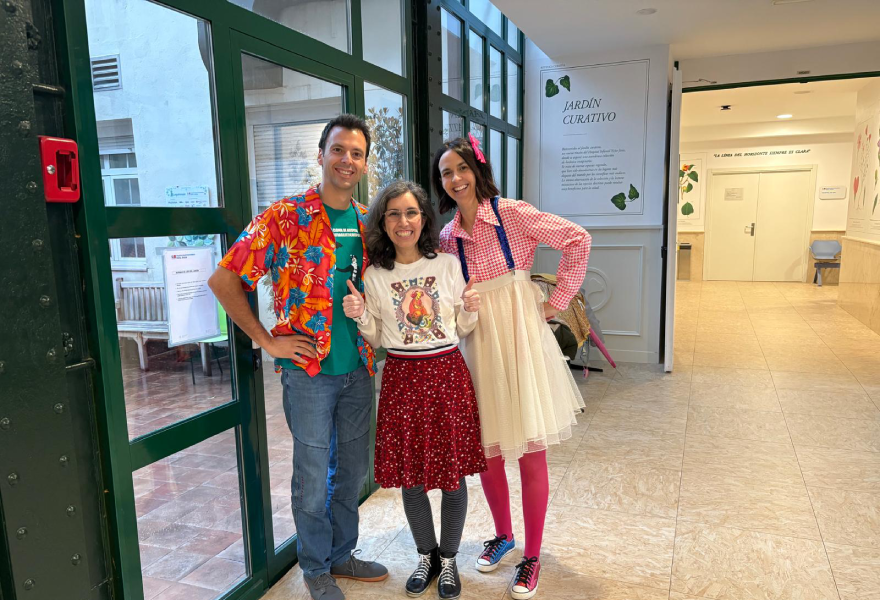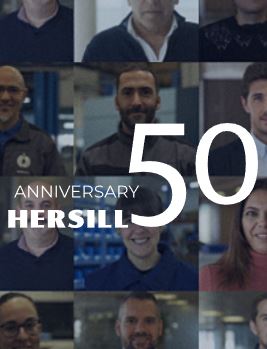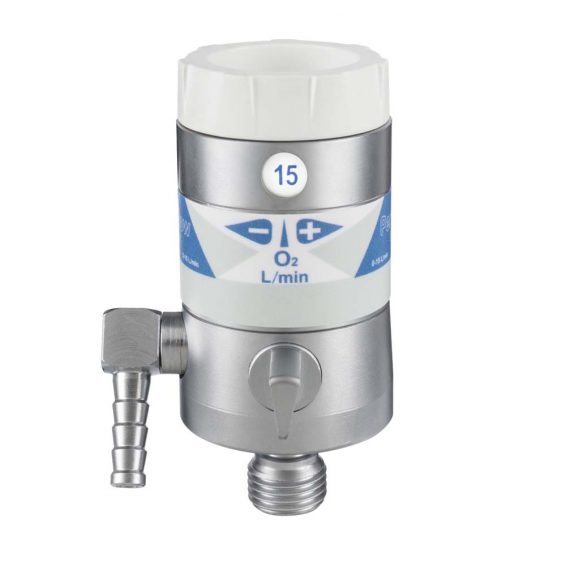HERSILL | NEWS | RCS | UPDATES |
In the corridors of the Niño Jesus Hospital, where silence and worry are often the norm, there is a special space where teenagers can find something as powerful as medicine: laughter. The Improvisation and Clown workshops, led by Julian, Veronica and Cristina Martinez (Cris Talina), offer these young people an emotional respite, a place where they can be themselves, without judgement, just through the magic of humour and creativity.
Julian and Veronica tell us how, in each session, the teenagers gradually loosen up, regain confidence and find in laughter a way of escape and healing. In a safe and empathetic environment, they manage to connect with their emotions and, most importantly, enjoy the present. This workshop is not just an activity, it is a source of hope that helps to rebuild self-esteem and bring a smile back to their faces in the midst of adversity. We invite you to find out how this corner of joy is transforming the lives of young people in treatment.
What does the workshop consist of? Tell us a little about the dynamics.
We run an Impro (improvisation) workshop using clown techniques to generate spontaneous comedy scenes with the participants.
The first part of the workshop aims to generate confidence and a good atmosphere through warm-up dynamics, creativity and body looseness. In the second part, we explain how to develop improvised scenes in a practical way, and in the third part, we will stimulate improvisations whose protagonists will be the users themselves, with the possibility of interacting with a Saniclown clown, as an expert in comedy.
Do you use didactic/therapeutic materials for implementation? Tell us what kind of activities you do during the session and which ones are best received.
We don’t use practically no physical materials in the sessions, we just need enough chairs and a large space to develop the improvisations. The activities we do aim to generate a climate of trust, a safe space, relaxation and concentration at the same time. In addition, they have a gentle scaling of difficulty and exposure, to ensure that even the most shy or introverted people can participate. The best reception is always given to the final improvisations, which take place when the group is more in tune and generate very funny scenes and, therefore, a lot of laughter in the room, something of incalculable value in a mental health admission.
How do you prepare before each workshop session?
We design the session beforehand to work on specific aspects in addition to improvisation: fluency, conflict resolution, developing creativity, connecting with colleagues, etc. Once at the hospital, we have a meeting beforehand with staff from the health team where they tell us what kind of assistants we have every day, possible difficulties, alliances, health and emotional states… In this way we can adapt the design of the session to make it as therapeutic and personalised as possible.
What is the atmosphere like at the beginning of the workshop?
As a general rule we find a group with low energy, with little interaction. Although sometimes it is just the opposite. It is part of the idiosyncrasy of mental health work.
At what point do you notice that adolescents start to loosen up more?
It is usually gradual. The first dynamics have that objective, so normally before the end of the warm-up you already have a good response from the group. It is also noticeable when you ask them for creative ideas and include them in the exercises, when they feel they are an active part of the session and above all when they perceive that their companions enjoy their ideas and get a smile or a laugh out of them. This has a personal value in reinforcing self-esteem and group integration and positive interaction.
How do you manage differences in attitude or energy between teenagers?
We have different strategies depending on many variables, through many years of experience. Each person and each moment of the session requires maximum attention and a wealth of resources to respond to each challenge. In any case, it is clear to us that we will prioritise the group over the individual, so we will always tend to focus on what is best for the group at any given moment. Introverted attitudes will have their space to enter the game without pressure; overly expansive attitudes will see that we try to redirect that energy towards the improvised scene; aggressive attitudes towards the group or any of its components will have the intervention of the health team to try to redirect them for the good of the group, etc.
Any special moment or anecdote that has marked you in a session?
So many moments. So many that they are already piled up one on top of the other. The other day during the session a boy was encouraged to participate from the beginning, he even improvised in scenes in which he was initially in the audience (although his companions brought him out spontaneously), he came up with some very funny resolutions on stage and at the end of the session he said that he had had a great time. This would be normal if it weren’t for the fact that, having had the final meeting only with the medical team and without teenagers, I was informed that this boy never interacts with anyone, he hardly speaks and during the almost month that he had been in the hospital, it was the first time that he was seen smiling and even verbalising that he had had a good time.
Have you noticed any changes in the adolescents since they started the workshop?
The example above is quite representative of what we notice during the sessions. And when we come back and find teenagers who repeat because they have a long income, we notice how they participate more from the beginning and evolve when it comes to creating scenes, comedy and listening. It’s very common.
What do you personally take away from this experience?
We take away the overflowing creativity of the teenagers; their desire to have a good time; the grateful feedback they give us; that they express that they have managed to disconnect for a while and be in the present; how they take care of each other and welcome each other, managing to be an example of sensitivity and empathy. We also took away with us the constant reflection of valuing adolescents in the needs for change that they require and in their capacity to face these challenges. So, we take away much that they give us and much that they give us.
Hersill is part of the Technologies that make a country campaign, which showcases the technological companies that develop, manufacture and innovate in Spain. Its work is actively contributing to the strengthening of the national technology industry, the creation of jobs and economic progress, while reinforcing Spain’s industrial autonomy to face the challenges of the future.



